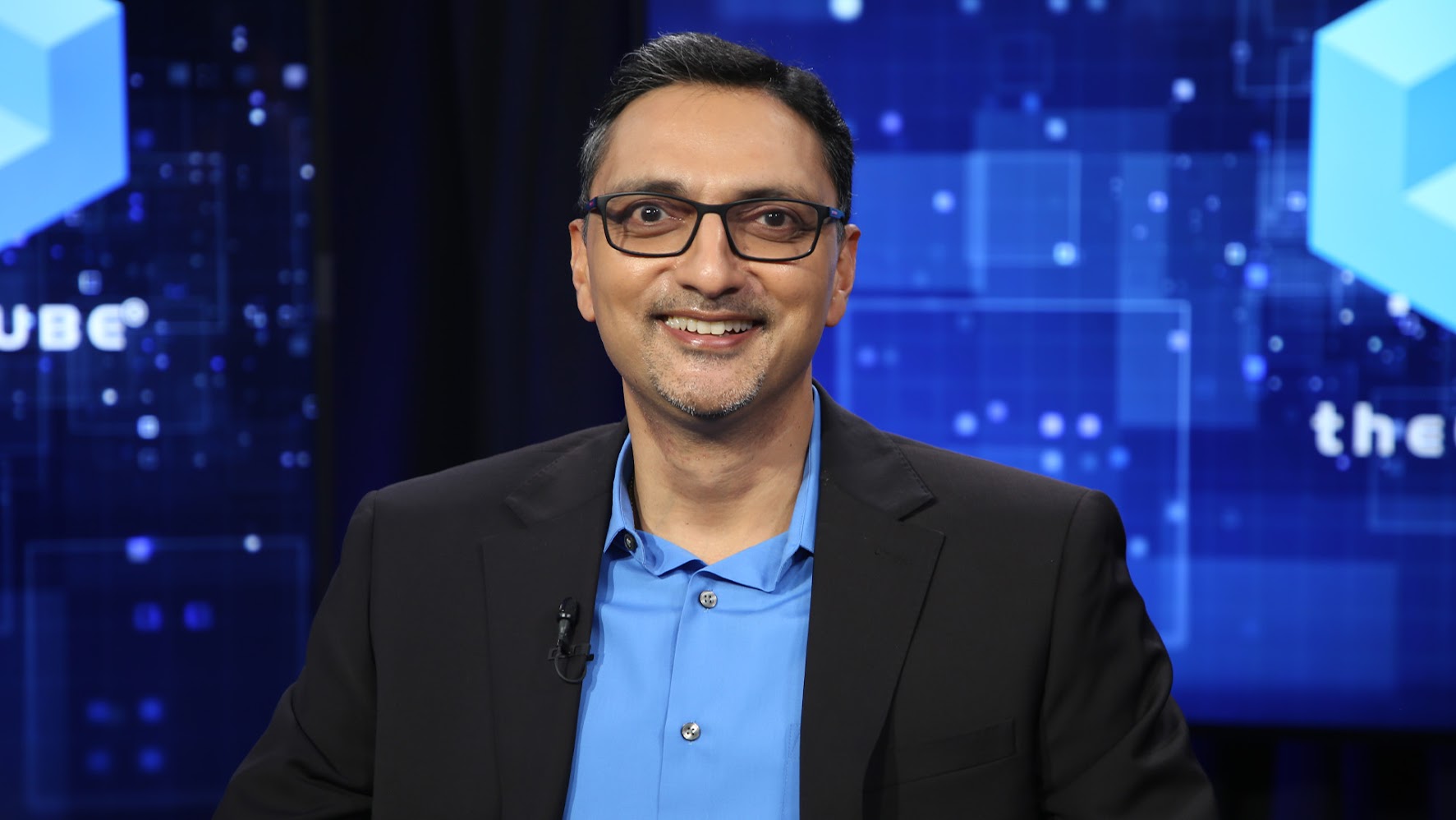
Digital certificate provider DigiCert Inc. has built its business around a basic question: Who and what can be trusted?
This simple query has become more complicated in recent years with the proliferation of artificial intelligence, deepfake tools and powerful quantum computers that can decrypt security algorithms in minutes. DigiCert’s message is that this new reality will require centralized visibility and control based on a framework for secure identity and access.
“How do you know that you are talking with the right website when you are transacting with your bank?” asked Amit Sinha (pictured), chief executive officer of DigiCert. “How do you know that the update you got on your iPhone is legitimate software from Apple? These are essential digital trust problems.”
Sinha spoke with theCUBE Research analyst John Furrier during an exclusive broadcast on theCUBE, SiliconANGLE Media’s livestreaming studio. They discussed the significance of digital trust and ways that DigiCert is protecting customers and raising awareness of the threats ahead. (* Disclosure below.)
DigiCert focuses on lifecycle management and root of trust
DigiCert addresses the digital trust issue by providing a certificate lifecycle management tool that breaks down public key infrastructure silos and offers a unified view across public and private resources.
“A lot of our progressive customers are using DigiCert’s Trust Lifecycle Manager,” Sinha said. “It is the platform that automates discovery, governance and then automation of … trust elements. All cryptography within your organization is centrally available.”
The company also provides a unified suite of digital trust solutions, called DigiCert ONE, that is being adopted by manufacturers to ensure that internet-of-things-enabled products leave the factory floor with a built-in root of trust.
“What DigiCert ONE, the platform, does is it allows IoT manufacturers to embed these types of birth certificates in their manufacturing lines,” Sinha said. “We just recently announced a partnership with Panasonic. All air conditioners in India that Panasonic is making will have trusted identities coming from DigiCert.”
Steps such as embedding trusted identities in IoT products are becoming more important as the security landscape changes. Significant advances in quantum computing could soon affect the cryptographic algorithms in public keys used to secure data.
“The fundamental cryptography problem is, ‘I need to talk to you. How do we exchange keys that will secure our communication?’” Sinha said. “A problem like factorizing big prime numbers that would take thousands of years on the fastest computer today can be solved in minutes on a quantum computer. At the rate at which things are advancing, it’s only a matter of time when you have an extinction level event for modern cryptography.”
Setting quantum-safe standards and raising awareness
In 2022, the U.S. Department of Commerce’s National Institute of Standards and Technology, or NIST, chose the first group of encryption tools designed to withstand a quantum assault on security.
“These are quantum safe algorithms that allow people to exchange keys and sign documents and software that even quantum computers cannot tamper with,” Sinha explained. “These standards are in the works, and we expect them to be fully baked by the end of the year.”
In the meantime, DigiCert is taking its own steps to guide customers toward a post-quantum world. The company has launched a quantum advisor program where the firm’s experts talk with organizations to get them prepared, according to Sinha.
DigiCert also announced this month that it would hold the first World Quantum Readiness Day on September 26. The event is designed to raise awareness around how quantum will challenge contemporary cryptographic standards and urge enterprises and governments to assess preparedness.
“It’s to rally organizations, drive that sense of urgency that people need to start thinking about in preparing for post-quantum cryptography,” Sinha said.
Along with raising awareness around the threat posed by quantum cryptography, DigiCert is also dealing with the challenges posed by significant advances in AI. Deepfakes are on the rise, and the company is working on solutions that can prevent fraudulent use of digital photos by malicious actors.
“We’re working on standards called content authenticity standards,” Sinha said. “What’s going to happen is the camera manufacturer is going to sign the metadata so that it’s tamper proof. The rate of change in AI is so fast … in many ways you almost need AI to govern AI.”
With more than 20 years in the market, DigiCert has emerged as a leading provider of digital trust, serving over 80% of the Fortune 500 organizations, according to Sinha. The company is working with a wide range of customers, including major cloud providers, to provide tamper-proof digital identities that can secure workloads and services.
“In today’s world, digital trust is tantamount for doing any business,” Sinha said. “When your customers trust you, it’s better for business. It’s better for growth.”
Here’s the complete video interview with Amit Sinha:
[embedded content]
(* Disclosure: DigiCert Inc. sponsored this segment of theCUBE. Neither DigiCert nor other sponsors have editorial control over content on theCUBE or SiliconANGLE.)
Photo: SiliconANGLE
Your vote of support is important to us and it helps us keep the content FREE.
One click below supports our mission to provide free, deep, and relevant content.
Join our community on YouTube
Join the community that includes more than 15,000 #CubeAlumni experts, including Amazon.com CEO Andy Jassy, Dell Technologies founder and CEO Michael Dell, Intel CEO Pat Gelsinger, and many more luminaries and experts.
THANK YOU
This post was originally published on 3rd party site mentioned in the title of this site




